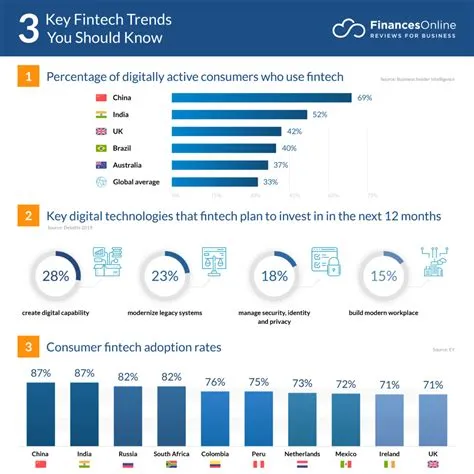Hey there! Ever feel like your mental health is a bit… neglected? Like you’re constantly juggling work, family, and social life, leaving little time for self-care? You’re not alone. Millions of us feel the same way. But what if I told you there’s a simple, accessible way to prioritize your mental wellbeing? Enter the world of mental fitness apps.
These aren’t just another fad; they’re powerful tools that can help you cultivate mindfulness, manage stress, improve your sleep, and generally feel more in control of your mental landscape. Think of them as your personal mental health coaches, always available in your pocket. But with so many apps out there, how do you choose the right one for you? That’s what we’re going to dive into today.
Let’s start with the basics. What exactly is a mental fitness app? Essentially, it’s a digital platform offering various tools and techniques aimed at improving mental wellness. We’re talking guided meditations, breathing exercises, mood trackers, cognitive trends">behavioral therapy (CBT) techniques, and even personalized programs tailored to your needs. Some apps offer a curated library of content, while others provide a more personalized experience, learning from your progress and adapting accordingly.
Think of your mental health like a garden. It needs consistent tending to flourish. You wouldn’t expect a beautiful garden to thrive without watering, weeding, and fertilizing, right? Similarly, your mental wellbeing needs regular attention. Mental fitness apps are like the tools that help you cultivate that garden, nurturing your inner peace and resilience.
The Different Types of Mental Fitness Apps:
The market is brimming with apps, each focusing on different aspects of mental wellness. Some popular categories include:
Meditation & Mindfulness Apps: These are arguably the most common type. Apps like Headspace and Calm offer guided meditations for stress reduction, sleep improvement, and general well-being. They’re like having a personal meditation teacher in your pocket, guiding you through various techniques to find inner calm.
CBT (Cognitive Behavioral Therapy) Apps: These apps use evidence-based techniques to help you identify and change negative thought patterns and behaviors. They often involve journaling prompts, interactive exercises, and personalized plans. Think of them as digital therapists, helping you rewire your brain for greater positivity and resilience.
Mood Trackers & Journaling Apps: These apps help you monitor your mood and emotions over time. This can be incredibly insightful, allowing you to identify patterns and triggers that might be affecting your mental health. Regular journaling, often prompted by these apps, allows for self-reflection and a deeper understanding of your emotional landscape.
Sleep Improvement Apps: Struggling to sleep? Many apps offer guided sleep stories, relaxing soundscapes, and breathing exercises designed to help you fall asleep faster and sleep more soundly. A good night’s sleep is crucial for mental wellness, and these apps can be a game-changer.
Stress Management Apps: These apps provide techniques for managing stress and anxiety, such as breathing exercises, progressive muscle relaxation, and mindfulness techniques. They’re like your personal stress-busting toolkit, readily available whenever you need a quick mental reset.
Choosing the Right App for You:
With so many options, choosing the right app can feel overwhelming. Here are some questions to ask yourself:
What are your specific goals? Are you looking to reduce stress, improve sleep, or manage anxiety? Identifying your goals will help you narrow down your choices.
What kind of format do you prefer? Do you prefer guided meditations, journaling prompts, or interactive exercises? Some people find audio-guided meditations soothing, while others prefer visual exercises.
What’s your budget? Many apps offer free versions with limited content, while others require a subscription for full access.
What are other users saying? Check out app reviews to get an idea of other users’ experiences. Reading reviews provides valuable insights into an app’s effectiveness and usability.
Beyond the Apps: A Holistic Approach:
While mental fitness apps can be incredibly helpful, it’s important to remember that they are just one tool in your mental wellness toolbox. They’re most effective when combined with other healthy habits, such as:
Regular Exercise: Physical activity is a powerful mood booster. Even a short walk can make a difference.
Healthy Diet: Nourishing your body with wholesome foods is essential for both physical and mental health.
Sufficient Sleep: Aim for 7-9 hours of quality sleep each night.
Strong Social Connections: Maintaining strong relationships with loved ones provides support and belonging.
Mindful Moments: Incorporate moments of mindfulness throughout your day, even if it’s just a few minutes of deep breathing.
Think of mental fitness apps as supplements, not replacements, for a healthy lifestyle. They’re a powerful addition to a holistic approach to mental wellbeing. They’re like vitamins for your mind – beneficial in conjunction with a healthy overall lifestyle.
The Future of Mental Fitness Apps:
The future is bright for mental fitness apps. We can expect to see even more personalized and sophisticated apps, incorporating advancements in AI and personalized data analysis to offer tailored support. Imagine an app that learns your individual triggers and proactively provides support before you even realize you need it – that’s the kind of future we’re heading towards. The integration of wearable technology is also likely to become more prominent, allowing apps to monitor physiological data like heart rate and sleep patterns, providing a more comprehensive picture of your mental and physical state.
But ultimately, the most important aspect of mental fitness apps is their accessibility. They’re breaking down the stigma surrounding mental health, making it easier for people to seek support and prioritize their wellbeing. This democratization of mental health care is invaluable, putting tools for self-improvement within reach of millions.
Conclusion:
Mental fitness apps are no longer a luxury; they’re becoming an essential tool for navigating the stresses of modern life. They offer a convenient, accessible, and often affordable way to improve your mental health, offering a range of tools and techniques to help you cultivate mindfulness, manage stress, improve sleep, and foster a greater sense of wellbeing. So, take a moment to explore the world of mental fitness apps, find one that resonates with you, and start your journey towards a happier, healthier you. Remember, trends">investing in your mental wellbeing is investing in yourself – it’s the most important investment you’ll ever make.
FAQs:
1. Are mental fitness apps safe? Most reputable apps are developed by professionals and utilize evidence-based techniques. However, it’s always a good idea to check the app’s privacy policy and ensure it aligns with your values. Remember, they are tools; they shouldn’t replace professional help if needed.
2. Do I need a subscription to use mental fitness apps? Many apps offer free versions with limited content, while others require a subscription for full access. The pricing varies widely, so it’s best to check each app individually.
3. How long does it take to see results from using a mental fitness app? This varies depending on the app, your individual needs, and your commitment to using it consistently. Some people experience benefits quickly, while others may take longer. Consistency is key!
4. Can mental fitness apps replace therapy? No, mental fitness apps should not replace professional therapy. They are supplementary tools that can aid in mental wellness but should not be relied upon as the sole solution for serious mental health concerns.
5. What if I don’t like an app after I’ve downloaded it? Most app stores have refund policies or trial periods, allowing you to test out an app before committing to a longer-term subscription. Don’t hesitate to try different apps until you find the right fit for you.

